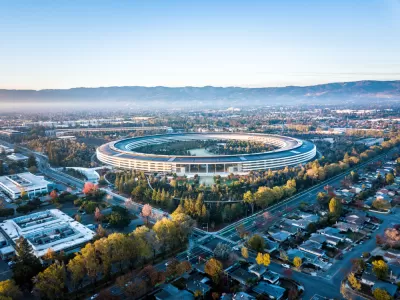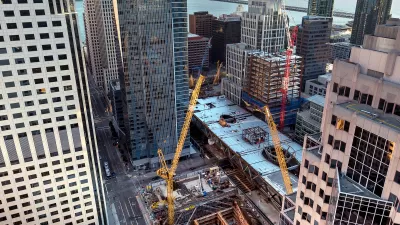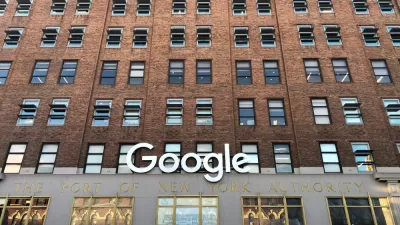New multibillion-dollar affordable housing commitments from leading tech firms may build out thousands of units, but that's nothing next to California's gargantuan housing shortage.

"The cost of housing has caused people to flee one of the hottest job markets in the nation, in one of the most beautiful places on earth," writes Conor Dougherty of the Golden State's housing crisis.
This year, Google, Apple, and Facebook have all thrown in billions of investment dollars to address the shortage. Though laudable, those efforts alone probably won't make much of a difference. One reason is the absurdly high cost of subsidized housing. A single unit in California averages around $450,000, and that figure balloons even higher in the big metros, Dougherty reports.
"Given those figures, the $4.5 billion that Google, Apple and Facebook have earmarked would create about 10,000 housing units." But against the state's housing deficit of roughly 3.5 million units, that's a pittance.
FULL STORY: Why $4.5 Billion From Big Tech Won’t End California Housing Crisis

Alabama: Trump Terminates Settlements for Black Communities Harmed By Raw Sewage
Trump deemed the landmark civil rights agreement “illegal DEI and environmental justice policy.”

Planetizen Federal Action Tracker
A weekly monitor of how Trump’s orders and actions are impacting planners and planning in America.

Why Should We Subsidize Public Transportation?
Many public transit agencies face financial stress due to rising costs, declining fare revenue, and declining subsidies. Transit advocates must provide a strong business case for increasing public transit funding.

Understanding Road Diets
An explainer from Momentum highlights the advantages of reducing vehicle lanes in favor of more bike, transit, and pedestrian infrastructure.

New California Law Regulates Warehouse Pollution
A new law tightens building and emissions regulations for large distribution warehouses to mitigate air pollution and traffic in surrounding communities.

Phoenix Announces Opening Date for Light Rail Extension
The South Central extension will connect South Phoenix to downtown and other major hubs starting on June 7.
Urban Design for Planners 1: Software Tools
This six-course series explores essential urban design concepts using open source software and equips planners with the tools they need to participate fully in the urban design process.
Planning for Universal Design
Learn the tools for implementing Universal Design in planning regulations.
Caltrans
Smith Gee Studio
Institute for Housing and Urban Development Studies (IHS)
City of Grandview
Harvard GSD Executive Education
Toledo-Lucas County Plan Commissions
Salt Lake City
NYU Wagner Graduate School of Public Service





























